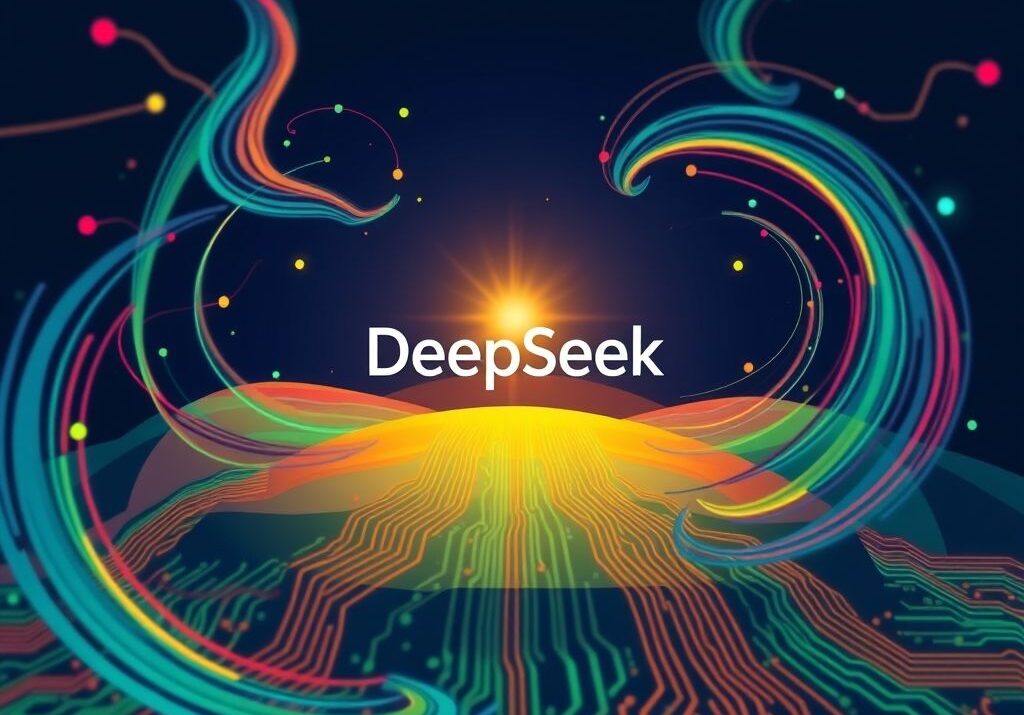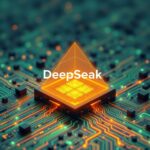Okay, let’s talk AI. We’re constantly hearing about massive investments and crazy amounts of computing power being the only way to push the boundaries. But what if that wasn’t the whole story?
I stumbled across a fascinating article on VentureBeat the other day, titled “Rethinking AI: DeepSeek’s Playbook Shakes Up the High-Spend, High-Compute Paradigm.” It got me thinking – are we so focused on throwing money and hardware at the problem that we’re missing smarter, more efficient solutions?
The article basically suggests that DeepSeek is doing things differently. They seem to have accelerated AI advancements, possibly by years, using a different approach than the usual “bigger is better” philosophy. This is a big deal! For so long, the dominant narrative has been about who can afford the most GPUs and the largest datasets.
And it’s not just about cost. Consider the environmental impact. A 2022 study by the University of Massachusetts Amherst found that training a single large AI model can emit as much carbon as 125 round-trip flights between New York and London. [https://arxiv.org/abs/1906.02243] If companies like DeepSeek can achieve similar results with less compute, that’s a win for both innovation and the planet.
This shift is particularly relevant for those of us in Cameroon. Access to cutting-edge hardware and massive computing resources can be a real challenge. If DeepSeek’s approach proves scalable, it could level the playing field, allowing smaller companies and research institutions to compete and innovate.
According to a report by McKinsey, AI could contribute $13 trillion to the global economy by 2030. [https://www.mckinsey.com/featured-insights/artificial-intelligence/notes-from-the-ai-frontier-modeling-the-impact-of-ai-on-the-world-economy] If we can democratize access to AI development, imagine the opportunities that could unlock here in Cameroon! We could see more local solutions tailored to our specific needs, boosting our economy and improving lives.
What’s interesting is the focus DeepSeek is putting on efficiency and smart algorithms. Instead of just scaling up, they seem to be innovating in the fundamental design of their models. This is crucial because, as Geoffrey Hinton, one of the “godfathers of AI,” has pointed out, simply adding more layers to a neural network doesn’t automatically guarantee better performance. [https://www.cs.toronto.edu/~hinton/]
This article really resonated with me because it challenges the common assumption that AI progress is solely dependent on massive resources. It opens up possibilities for more innovative and accessible AI development, especially for regions like ours where resource constraints are a reality.
Here are 5 Takeaways:
- Efficiency Matters: DeepSeek shows that algorithmic innovation can be just as important as raw computing power.
- Democratization of AI: Their approach could lower the barrier to entry for AI development, enabling smaller players to compete.
- Sustainability: Less compute means a smaller environmental footprint.
- Opportunity for Cameroon: We can leverage these efficient AI models to create local solutions.
- Rethink Assumptions: It’s time to question the “high-spend, high-compute” paradigm and explore alternative approaches.
FAQ: DeepSeek and the Future of AI
1. What is DeepSeek and why are they important?
DeepSeek is an AI company that’s gaining attention for its approach to AI development, which focuses on efficiency and smart algorithms rather than solely relying on massive computing power. This is important because it could make AI development more accessible and sustainable.
2. How is DeepSeek challenging the traditional AI development model?
Traditionally, AI development has been heavily reliant on large datasets and massive computing resources. DeepSeek is showing that significant advancements can be made by optimizing algorithms and focusing on efficiency, potentially reducing the need for such massive resources.
3. What are the potential benefits of DeepSeek’s approach?
The benefits include lower costs, reduced environmental impact due to less energy consumption, and the potential for smaller organizations with limited resources to participate in AI development.
4. How could DeepSeek’s advancements impact countries like Cameroon?
By making AI development more accessible, DeepSeek’s approach could empower local companies and researchers in Cameroon to develop AI solutions tailored to their specific needs and challenges.
5. Is DeepSeek’s approach sustainable in the long run?
While it’s still early to definitively say, focusing on efficiency and algorithmic innovation appears to be a more sustainable approach in the long run, as it reduces reliance on ever-increasing computing power, which has environmental and economic implications.
6. What are the limitations of DeepSeek’s approach?
It’s possible that there are certain AI tasks or applications where massive computing power is still necessary. DeepSeek’s approach might not be a one-size-fits-all solution, and further research and development are needed to understand its limitations.
7. How can Cameroon leverage the insights from DeepSeek’s work?
Cameroon can invest in AI education and training programs that emphasize algorithmic innovation and efficient AI development. This will equip local talent with the skills to leverage these advancements.
8. What kind of infrastructure is needed to support efficient AI development in Cameroon?
While massive computing infrastructure might not be necessary, access to reliable internet, cloud computing resources, and skilled technical personnel are crucial for supporting efficient AI development.
9. Are there other companies exploring similar approaches to DeepSeek?
Yes, there are other companies and research institutions exploring ways to make AI development more efficient and sustainable. This is a growing trend in the AI community.
10. What are the ethical considerations of AI development, regardless of the approach used?
Regardless of whether AI development relies on massive resources or efficient algorithms, ethical considerations such as data privacy, bias, and responsible use of AI remain paramount. It’s crucial to address these ethical issues to ensure that AI benefits society as a whole.








